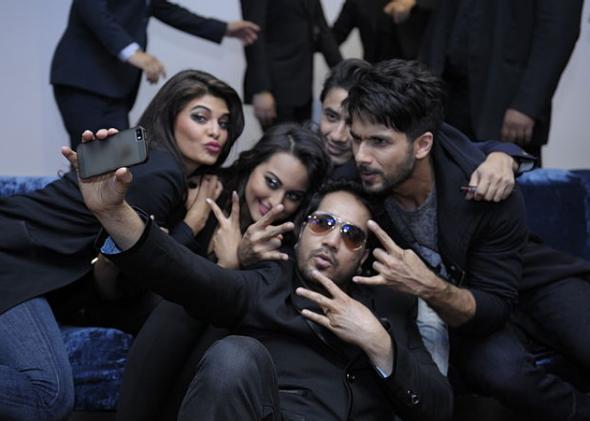There can be few people who don’t know that a selfie is a photograph that you take of yourself, typically with your smartphone. The editors at Oxford Dictionaries started tracking the word back in April 2012, at which time it was noted that there were 36 examples on the newspaper database Nexis “mainly in reference to recent use by Hillary Clinton,” who had apparently used the word in a text message to the owner of a Tumblr blog consisting solely of images of her sending texts. Our own Oxford English Corpus featured only two instances of the word.
By the following spring, databases of language use showed that selfie was becoming increasingly common in mainstream media sources and it was chosen for inclusion in the August 2013 update of OxfordDictionaries.com. Three months later, the evidence on the Oxford Corpus reflected such a dramatic explosion of usage that we chose selfie as our Word of the Year for 2013. Widely covered in the media, the announcement even prompted the Curiosity Rover on Mars to send a selfie to the OxfordWords feed:
While selfie’s star began to rise in 2012, it’s actually much older than that: the earliest usage we’ve found is from 2002, in an Australian Internet forum. This means that the term easily qualifies for inclusion in the Oxford English Dictionary, and it was duly added in June 2014.
The latest figures show almost 20,000 examples of use on the Corpus, whose contents are also testament to the continued linguistic productivity of the selfie: We’ve witnessed the emergence of the felfie (a selfie taken by a farmer), the usie (a selfie of more than one person), the dronie (a video that you take of yourself by means of a camera attached to a drone), and the shelfie (a photo of a bookshelf), to name but a few. There are now names for the characteristic faces people make when they’re taking a selfie, such as duck face (an exaggerated pout) or sparrow face (a wide-eyed look combined with slightly pursed lips). And selfie sticks have been devised—special gadgets that enable us to take selfies at a greater (more flattering?) distance.
There’s perhaps another interesting development. Etymologically speaking, the self- in selfie refers to the fact that the photograph is taken by the subject, whether he be the only person in the photograph or part of an ensemble piece (witness the celebrity-filled selfie taken by Bradley Cooper at the Academy Awards in 2014). Increasingly it is also being used to refer to a photograph of a person that has been taken by another person, such as this example from the Oxford Corpus: “Ben said ‘take a selfie of me backstage’ which actually means ‘take a photo’ so I did! HERE IT IS!” or instances where the subject might struggle to take the photograph, as demonstrated by this example “She posted a selfie of her dog.” In effect, selfie is becoming a synonym for photograph.
A version of this post originally appeared on the Oxford Dictionaries blog. What would be your Word of the Year for 2014? Join in the discussion in the Oxford Dictionaries Community.
Follow @lexiconvalley on Twitter or on Facebook.
